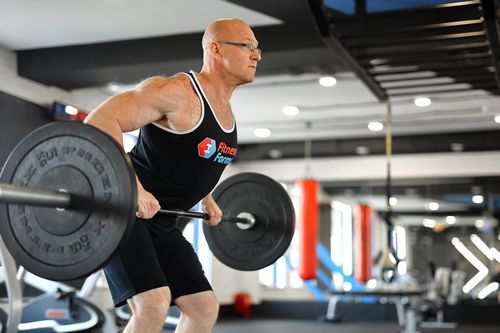Embarking on a fitness or muscle-building course often involves rigorous training, strict diets, and sometimes supplementation to achieve desired results. However, an often-overlooked aspect of optimizing performance and recovery is ensuring adequate intake of essential vitamins and minerals. These nutrients are fundamental for maintaining overall health, supporting metabolic processes, and facilitating muscle repair and growth during intense training periods.
The Importance of Vitamins and Minerals in a Training Course
Vitamins and minerals serve as cofactors for numerous enzymatic reactions that sustain energy production, immune function, and tissue repair. During a course focused on strength, endurance, or physique development, the body’s demand for these nutrients increases to compensate for physical stress and prevent deficiencies that could impair progress.

Proper nutrition with adequate vitamins and minerals not only helps in avoiding common deficiencies but also enhances the body’s ability to recover quickly, intensify workouts, and build lean muscle mass. A well-rounded approach to supplementation and diet can significantly influence the effectiveness of a training program.
Key Vitamins and Minerals Needed During a Course
Vitamins Essential for Performance and Recovery
- Vitamin D: Facilitates calcium absorption, supports bone health, and modulates immune function. Adequate levels are linked to improved muscle strength and recovery.
- Vitamin C: An antioxidant that reduces oxidative stress, promotes collagen synthesis, and boosts immune defenses.
- Vitamin E: Protects cell membranes from oxidative damage, aiding in recovery after strenuous workouts.
- B-complex Vitamins (B1, B2, B3, B6, B12): Play vital roles in energy metabolism, red blood cell formation, and nerve function, helping sustain high energy levels and reduce fatigue.
- Vitamin A: Supports immune health and cellular growth, crucial during intense physical activity.
Minerals Essential for Physical Performance
- Magnesium: Important for muscle contraction, relaxation, and energy production. Deficiency can lead to cramps and fatigue.
- Zinc: Supports immune health, protein synthesis, and enzyme functions critical during muscle repair.
- Iron: Vital for oxygen transport in the blood; adequate iron levels improve stamina and reduce fatigue.
- Calcium: Necessary for strong bones and proper muscle function.
- Potassium: Regulates fluid balance and muscle contractions, preventing cramps and supporting cardiovascular health.
- Selenium: Acts as an antioxidant, protecting cells from oxidative damage caused by intense exercise.
Additional Nutrients Supporting Overall Well-being
In addition to the primary vitamins and minerals, certain other nutrients contribute to optimal performance during a course:
- Omega-3 Fatty Acids: Reduce inflammation, support joint health, and aid in recovery.
- Electrolytes: Such as sodium and chloride, maintain hydration and nerve function during prolonged training sessions.
- Probiotics: Support gut health, ensuring efficient nutrient absorption and immune function.
Strategies to Ensure Adequate Intake
Dietary Sources
Focusing on a balanced diet rich in whole foods is the first step toward meeting vitamin and mineral needs:
- Consume lean meats, eggs, and dairy for vitamin B12, zinc, and iron.
- Incorporate a variety of colorful fruits and vegetables for vitamins C, A, E, and antioxidants.
- Eat nuts, seeds, and whole grains for magnesium, selenium, and B-vitamins.
- Include fatty fish like salmon and mackerel for omega-3 fatty acids and vitamin D.
- Drink plenty of water and include electrolyte-rich beverages if necessary.
Supplementation
When dietary intake may be insufficient, targeted supplementation can help bridge gaps. It is advisable to consult healthcare professionals before starting any supplement regimen to tailor doses according to individual needs and avoid excessive intake.
Conclusion
During a course aimed at enhancing physical performance and building muscle, ensuring adequate intake of vital vitamins and minerals is paramount. These nutrients underpin energy metabolism, support immune defenses, promote tissue repair, and enable the body to adapt to increased physical demands. By prioritizing a nutritious diet complemented with appropriate supplementation, individuals can optimize their results, reduce injury risk, and maintain overall health throughout their training journey.
For optimal performance during a course, it is essential to ensure adequate intake of vitamins and minerals. These nutrients play a crucial role in supporting overall health and well-being, as well as aiding in recovery and muscle growth. To learn more about the specific vitamins and minerals needed during a course, visit anabolicsteroids-usa.com.
